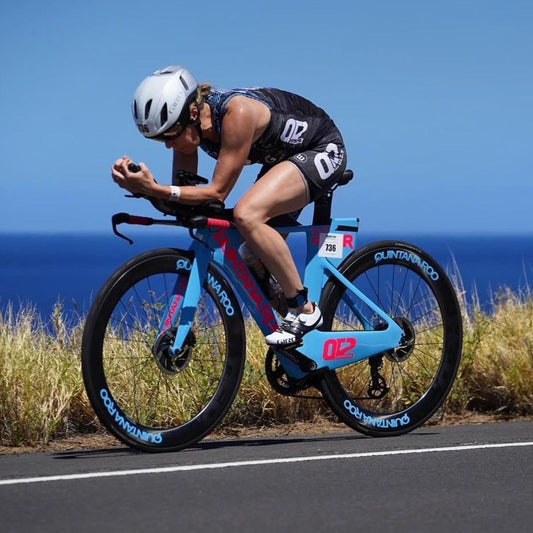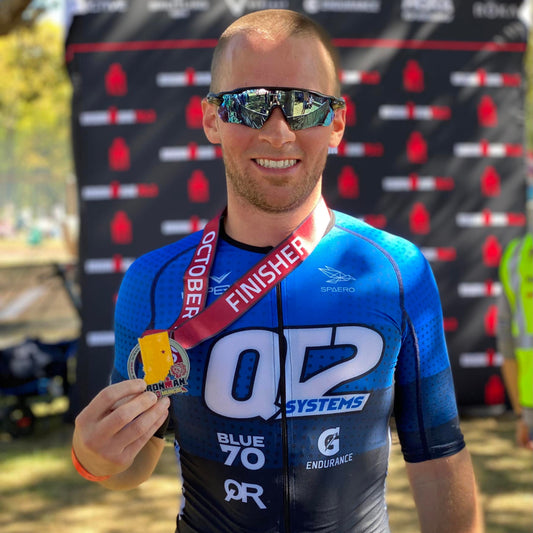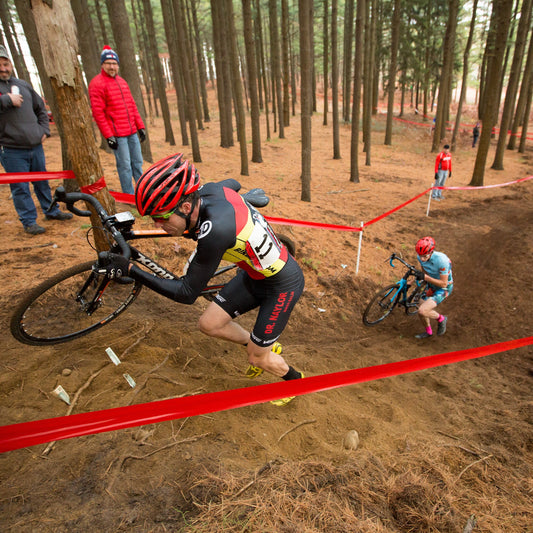As triathletes, we embrace structure, predictability, control, routine. We lay out our goals far in advance and then plan a season to prepare to achieve those goals. We develop a base, we build, we do race specific work, we taper, we race, and we do it again. We swim on Mondays, Wednesdays and Fridays. We do our bike intervals on Tuesdays and our long ride on Saturdays. We hit the track on Thursdays and do our long run on Sundays. We mix in strength training and body work. We focus on our nutrition before, during and after our training sessions. We analyze our Garmin files. We replace our running shoes as soon as they show wear. We look for the latest gadgets, the fastest wetsuit. All of our efforts are laser directed at achieving our goal of hitting that PR on our A race day.
That was normal.
But let’s face it. We are now in a world that is not normal. With pools closed, races cancelled, group rides and runs tabled, and the world turning virtual, all of our careful planning has been thrown out the window. So what now? How do we operate in this new normal? As a triathlete and triathlon coach, one thing I can say is that the answer is not the same for everyone. But here are some of the things I’m doing to try to get through these times.
Take a step back and communicate. Rather than approaching a training session with a goal of achieving a specific outcome, use it as a time for reflection. Your time. In your head. Right now, life is full of stress. Allow your training to relieve that stress, not create more. While it’s important to have a plan, forgive yourself if you miss a workout. Athletes, talk to your coaches. Coaches, talk to your athletes. Together, figure out the best path forward.
Focus on something other than numbers. If you are a coached athlete, chances are your daily workouts include specific details about how long you should train and exactly what you should do in that training session. The success of the workout is measured by whether you hit your target watts or run pace. Try focusing on something else. Perhaps the quickness of your turnover on the run, the smoothness of your pedal stroke on the bike, your catch on the swim (or swim bands). Or maybe something so simple as the pattern of your breathe. Use this opportunity to become connected with your body. To learn things about yourself which numbers won’t tell you.
Tune out and tune in. Over the years, sometimes I run with music and sometimes I don’t. Right now, I run with music. I listen to my favorite tunes and pull the emotion from the music. The music lets me escape, even if just temporarily.
Appreciate the small stuff. Allow yourself to take in what’s around you. Perhaps you will notice the sunlight reflecting off of the water or the smells of spring. Maybe a dog barking or a child laughing with his parents. All signs that yes, our world is different, but we are still alive.
Take the time to do the extra things. With all of our focus on getting in the key workouts, we often forget (or just disregard) the other important things. Get in a good warm-up. Take the time to stretch & roll. Get the rest you need. Be good to yourself.
Remember your why. Why did you enter the world of triathlon? Why do you race? Why do you push your body the way that you do? Chances are, the answer has nothing to do with pushing specific watts.
There will be a time when we race again. And maybe, just maybe, we will learn from all of this chaos and emerge on the other side as better and stronger versions of ourselves.
This post was written by Coach, Reem Jishi.





